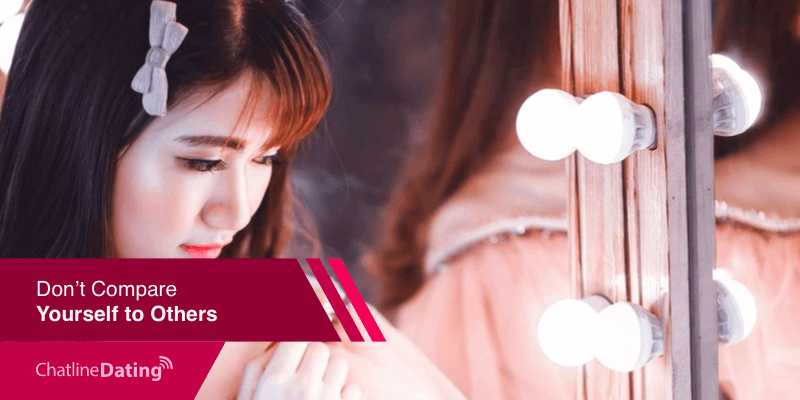How to Love Yourself

We all know those people who are full of life, they shine, people like Beyonce. As much as their friends and fans love them, it’s not the love they get from others that makes them glow — they glow because they truly love themselves, and not in a vain way.
Sure, some people are amazingly talented, so maybe you argue that it would be easy for them to love themselves. But self-love needs to come first for them to find their talents. People who seem to shine with their purpose love themselves enough to see who they really are.
Because they have this centered perspective, they find what they are really good at. They also trust that they can turn these talents into valuable skills. Once you love yourself, taking chances and working towards living your best life every day doesn’t seem so impossible. To love yourself, you need to truly understand yourself because it’s impossible to love someone you don’t know.
It also not possible to build something with someone you don’t trust. Let’s look at these 8 steps to finding yourself, which leads to loving yourself, and allows you to glow-up.
1. Stop Comparing Yourself to Others.

The constant comparison of ourselves to other people makes our egos fragile. Being fragile makes life difficult, so we mask it. There are two main kinds of masks. The first mask is that of a superiority complex. The second mask is an inferiority complex.
It is easy to see why an inferiority complex is not loving yourself, but some people confuse the superiority complex with self-love. This is because a superiority complex looks a lot like confidence.
Next, let’s look at why these complexes are not self-love, and the middle ground allows us to break these masks and love ourselves.
Superiority:
To feel good about who they are, the person with a superiority complex needs other people to compare themselves against negatively. They need people to be worse than them or less than them to feel positive about themselves.
This means they don’t see a true value in themselves, and they only see value in other people being weaker than them. This creates all kinds of horrible social effects such as bullying, racism, and sexism. It’s ultimately a hollow existence for the person with this complex as they have no value within themselves without a damaging comparison to someone else.
The good news is that moving past this complex is done by recognizing it and choosing to grow past this world’s negative perspective. It’s done by searching for value in yourself without looking to see how you can be bigger or better than others.
Inferiority:
If someone has an inferiority complex, they compare themselves to others as a victim. They see themselves as someone who will be “caught out” for their flaws. This very clearly isn’t love for oneself because it is the undervaluation of self-worth. This undervaluation is justified by thinking that others are just naturally superior.
This negative way of seeing oneself protects the person from taking risks or stepping forward and claiming ownership of their actions. This also leaves a vacuum in the person’s decision-making process as the person does not control their own life and purpose. The way out of this mask is to realize that no one is naturally superior and that every single one of us has something unique to offer this world that should be valued.
By recognizing their ability to change their lives and expand their abilities, a person with an inferiority complex can remove this mask and start on a journey towards loving themselves.
Not Above Nor Below:
Without comparison, the realistic point of view is that you really are the only you in this world. Being the only you in the world has intrinsic value, and understanding this can release you from the trap of false comparisons.
If you are not warping your self-perspective from the lens of everyone being better than you or everyone being worse than you. You can see who you truly are and start a strong relationship with your fully authentic self. You will see good parts in your authentic self, and you will also see parts you don’t like.
Loving yourself is not about denying who you are or trying to be someone else. It’s about understanding who you are and feeding yourself the experiences you need to become the best version of yourself you dream of.
2. Stop Trying to Get an Approval.

Being a mother, brother, husband, or wife are good things, but they can’t define everything about you as an individual. Those are roles that you play within the context you exist in, but they are not all you are. Your roles will be connected to the perception people have of you, which can’t be denied, but that should not limit who you choose to become in your lifetime.
Unfortunately, other people’s perspectives of you will always be limited to the role we play in their life. If their perspective does not match our own self-view, that’s OK. It makes perfect sense as they can’t see the entirety of who you are in all your other roles. Constantly seeking approval is a hurdle to the process of developing love for yourself.
It forces you to behave in ways that please others instead of making the best choice for all your needs. If you constantly adjust yourself to get approval from those around you, you may never find authenticity in your view of yourself. This will prevent you from loving who you are.
Overcoming this requires setting healthy boundaries and insisting on taking opportunities for self-growth. It’s possible to progress yourself towards who you dream of being all while still loving and respecting those around you.
3. Make Your Ego Your Foundation, Not a Decoration.
If your ego is a decoration like a balloon, you may feel it swell up with pride every time you get a compliment. It feels amazing to get validation, and it makes your balloon ego puff up with pride. If you haven’t had a compliment in a while, your balloon starts to get a little soft.
If you get a particularly sharp and maybe even accurate insult, your ego might just pop. This is not an easy thing to do, but the first step of making your ego a foundation is to never take compliments or insults too seriously. You never really know the intention behind compliments; they could be genuine or to butter you up.
Insults could be thrown out of jealousy, or just a clumsy phrase said by someone not thinking about their words’ effect. The best thing about both of them is that they are rarely 100% true. Compliments and insults will always affect how we feel about ourselves, but they should never have the power to feed or kill your ego.
If you have a true assessment of who you are, your ego is a strong foundation that can’t be inflated or devastated by a few words.
4. The Sky Doesn’t Feel Guilty About Bad Weather, and Neither Should You.
By not comparing yourself to others or constantly seeking approval, you should have a more constant, accurate view of who you are. Your strengths and weaknesses, as well as your gifts, should be clear to you. Seeing this essence as your constant state, bad days will be just what they are — passing days.
Think of the sun as you; it’s a constant source of energy even if clouds cover it sometimes. The short-term effects or weather are impermanent, but the core of who you are is still there.
So if you have a stormy day where nothing goes right, and you can’t see your own glow, there is no reason to be devastated or to feel insignificant. Your core will still be the same, and your value will remain the same, even during an off-day.
5. Think About Yourself Less.
The constant comparison of yourself to others means you are constantly thinking about yourself. To be concerned with others’ approval of you also means you are thinking about yourself constantly. To be afraid that others are constantly being critical of you is, yet again, constantly thinking about yourself.
This is exhausting and does not create a suitable emotional environment for growth and development. Humility is the secret escape from all of this. Humility is a surprising superpower because it is not thinking you are less than others — humility is about accepting yourself for who you are and being unshakeable in this fact.
Because humility results in not placing importance on others being superior or inferior to you, you can stop questioning what people think and where you would be categorized in some false hierarchy of superiority. Instead of investing energy into comparisons, you can invest your energy into your interests, skills, and passions.
6. Make Others the Center of Your Attention.
Fear of public speaking, fear of speaking up in a meeting, fear of putting yourself out there — it’s potent. The idea of being scrutinized by everyone else in a room can terrify us into submission. Many opportunities in life are linked to pushing past this fear to continue growing personally and professionally.
If you turn the tables on the perspective and take control, this fear will subside. Instead of feeling victimized by others’ attention, make them the center of yours. You can free yourself from crippling shyness by shifting your perspective away from being at the center to centering everyone else into your attention.
7. Find Ways to Love Yourself and Others.
If you are prone to seeing yourself negatively, remember that there are always things to love. Start small, even if you like something like the shape of your hands or how well you make a cup of coffee. Try to take note of something you like about yourself every day.
If you can see yourself for your good attributes and truly appreciate them, you can build this muscle to recognize your positive attributes and appreciate them. Your relationships with others will be positively affected too.
By genuinely appreciating all the unique elements that make you exactly who you really are, you can forge genuine connections with those around you. Only through genuine connections can we love others for who they truly are. Your positive influence will illuminate the self-journey of others around you, as this is something we all struggle with.
8. Take Risks for Self-Development.
You may randomly meet someone fascinating. Perhaps this person could change your life if you choose to take the chance of getting to know them better. Your work may give new opportunities that could develop your skills if you take a new challenging position.
You may even find you have the opportunity to start a venture of your own that would help a cause you are immensely passionate about. One thing that all of these exciting events have in common is a risk. Those who don’t know themselves don’t trust themselves to take risks and deprive themselves of great opportunities.
It can be comfortable to just keep living the same way you always have. Like taking a Sunday drive through life. That’s where your life stops, though. There won’t be new developments without challenges that will teach you new skills. Big changes in our lives can be great opportunities for something bigger.
It’s wise to never waste an opportunity to change by only seeing it as a disaster. If you know yourself, if you trust yourself, and if you are kind enough to see this as a learning opportunity, you can give yourself the life, love, and glow-up you always dreamed of.













